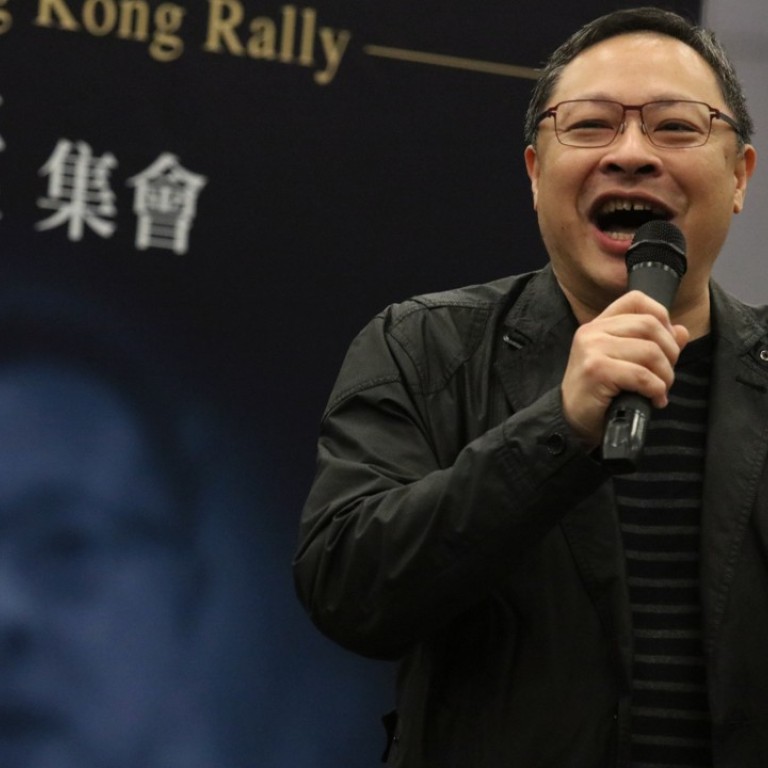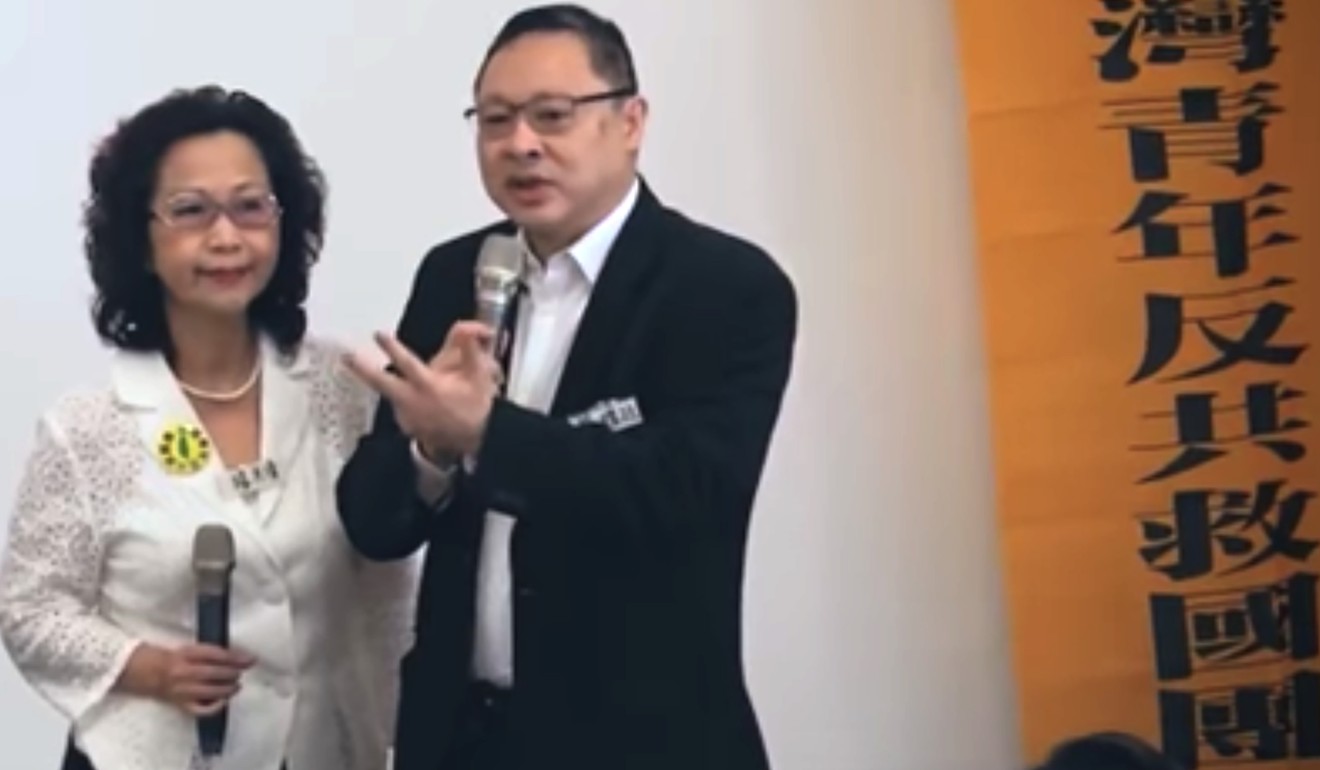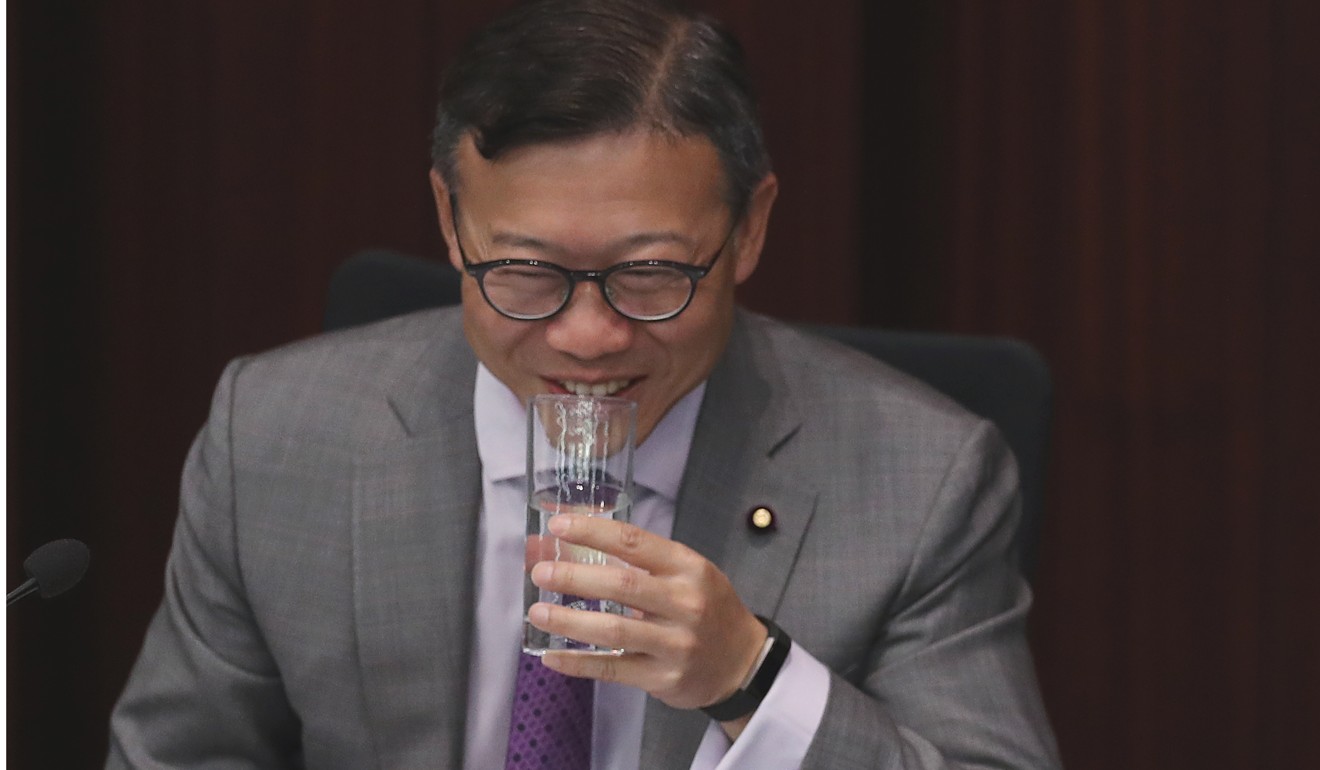
Impact of Benny Tai’s independence remarks on Chinese ‘national interest’ to be debated in Hong Kong legislature
Motion passed to table a debate for May 9 following fiery condemnation by authorities of scholar’s comments on possibility of city breaking away
Hong Kong lawmakers clashed on Friday over whether the government was entitled to condemn liberal scholar Benny Tai Yiu-ting for his controversial remarks on the city seeking independence from China.
A motion was passed in the legislature to table a debate for May 9 on the impact of Tai’s comments on the city and China’s “national interest”. It was raised by pro-establishment lawmaker Gary Chan Hak-kan, whose camp was able to push it through using their majority in the chamber.
Another motion, backed by the legislature’s pro-democracy camp, sought to discuss the impact on “freedom of expression and academic freedom” of the government’s subsequent condemnation of Tai’s remarks. It was voted down.
Tai has come under fire since video emerged of him at a forum in Taiwan last month suggesting Hong Kong could consider independence or entering into a confederation with other regions of China should the country become democratic in the future.

In response the Hong Kong government issued a statement saying it was “shocked” by Tai’s remarks.
The Chinese central government also chipped in, with the State Council’s Hong Kong and Macau Affairs Office and Beijing’s liaison office in Hong Kong issuing strongly worded statements warning against “challenging the bottom line” of the “one country, two systems” formula under which the former British colony is governed.
Why Beijing came down so hard on pro-democracy academic Benny Tai over Hong Kong independence comments
The two offices said Tai had violated both the Chinese constitution and Hong Kong’s Basic Law, the city’s mini-constitution.
However, several pro-Beijing lawmakers acknowledged at Friday’s Legco meeting that there was no criminal law in Hong Kong with which to sanction Tai. But they said the concepts of freedom of speech and academic freedom were no defence for his words.

Horace Cheung Kwok-kwan, an adviser to Hong Kong’s leader and a lawmaker with the Democratic Alliance for the Betterment and Progress of Hong Kong, the city’s biggest pro-establishment party, said the government had done nothing wrong in condemning Tai.
“The government hasn’t arrested him, it’s just a statement condemning him. Does the government not even have freedom of speech?” Cheung said. “What he did was against the Basic Law.”
Wong Kwok-kin of the Federation of Trade Unions also weighed in, saying “there are no laws against it, but that doesn’t mean there’s no moral problem with it. It’s time for legislation against these kinds of speeches.”
Benny Tai breached the Basic Law with Hong Kong independence speech, and should lose HKU post
Wong was referring to the clause in the Basic Law which requires the city to enact its own legislation banning any act of treason, secession, sedition or subversion against the central government.
Democrats have slammed the attacks on Tai, saying they placed renewed pressure on freedom of speech and academic freedom in the city.
People Power’s Raymond Chan Chi-chuen on Friday said the government had launched a smear campaign against him, but more moderate pro-democracy lawmakers were more cautious with their remarks. Democratic Party chairman Wu Chi-wai said his party resolutely opposed independence, but whether Tai’s argument was well substantiated was “up for debate”.
He cautioned however that with “any restriction to these discussions there would no longer be freedom of expression” in Hong Kong.

